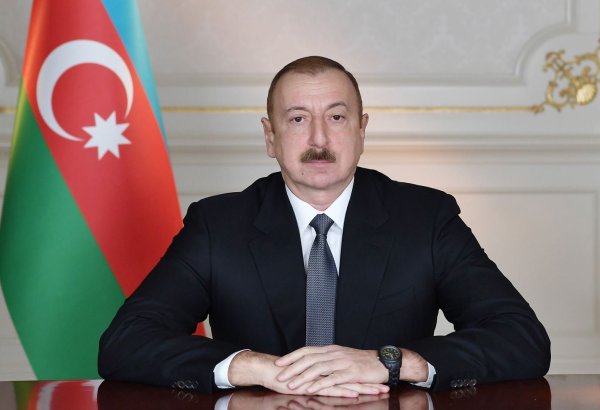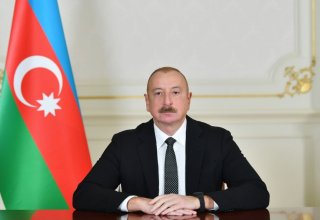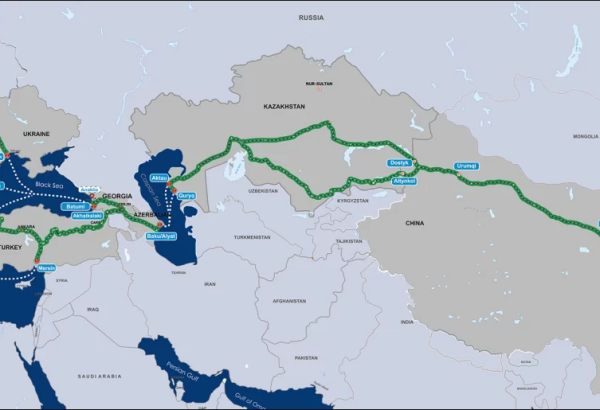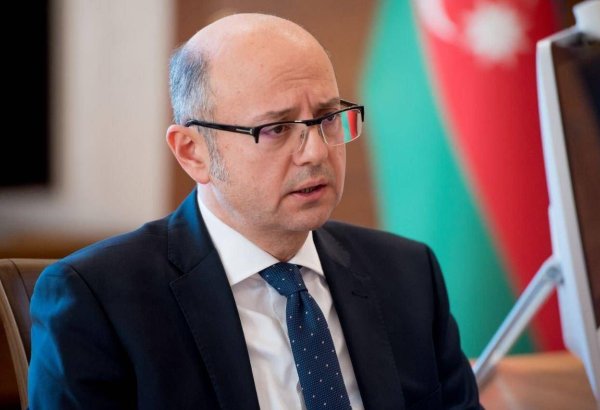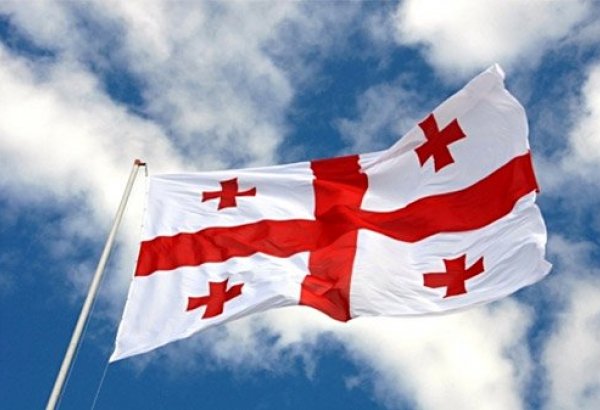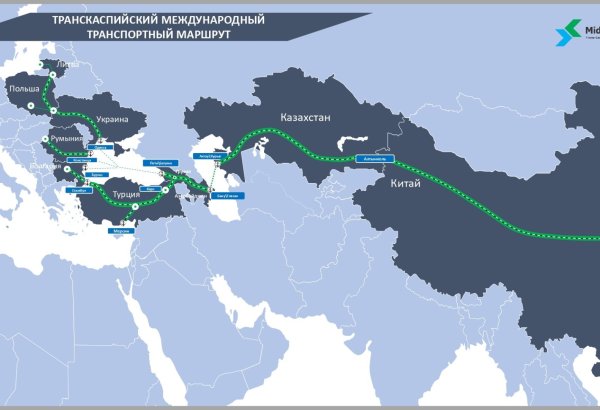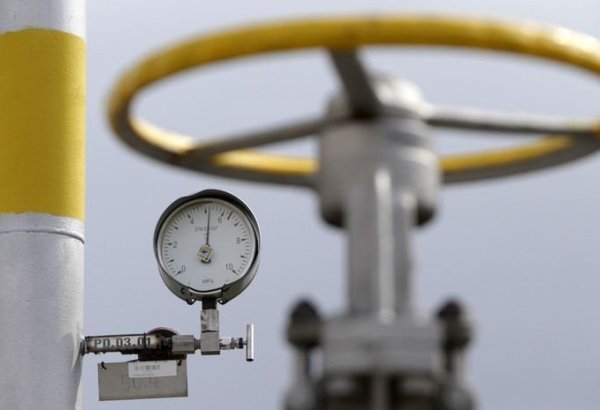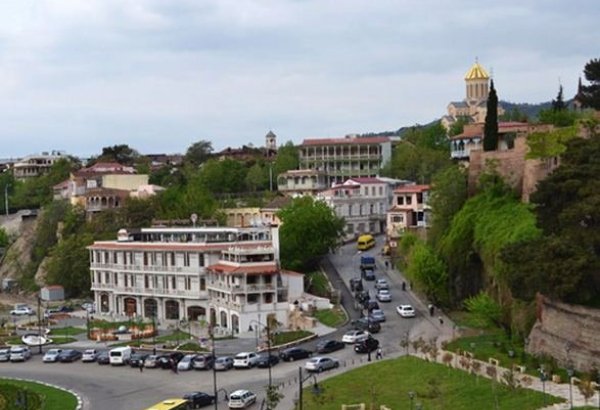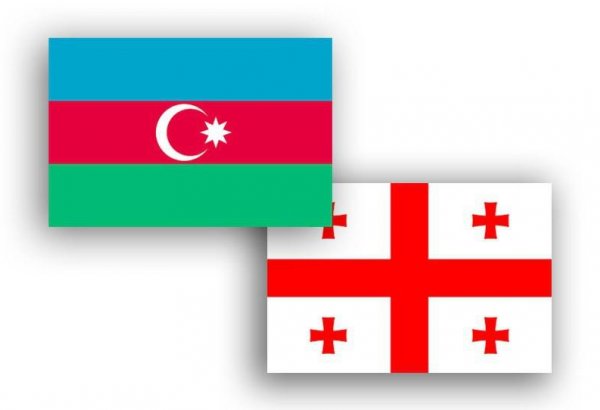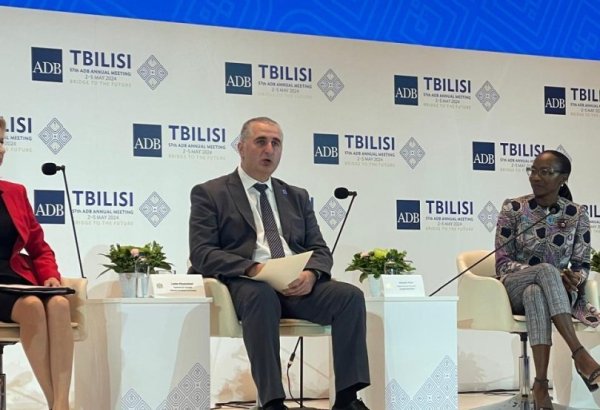TBILISI, Georgia, May 2. The Middle Corridor is experiencing a surge in prominence as an extraordinary alternative to Black Sea ports or land routes for facilitating trade flows between Europe and Asia in light of the current difficult global environment and the increasing need to diversify supply chains, First Vice Prime Minister and Minister of Economy and Sustainable Development of Georgia Levan Davitashvili said, TurkicWorld reports.
He made the remark at a panel discussion on the topic "Enhancing Connectivity: European Connectivity (Renewable Energy and Digital Connectivity) Middle Corridor (Reshaping Euro-Asia Connectivity)" within the framework of the ADB (Asian Development Bank) annual meeting in Tbilisi.
"In pursuit of this objective, the nation is proactively enhancing its transportation infrastructure via a multitude of initiatives, including railway modernization, the Baku-Tbilisi-Kars railway line, the East-West highway, and the deep-sea port of Anaklia, among others."
These strategic investments are aimed at strengthening Georgia's role as a bridge between Europe and Asia, while providing corresponding opportunities to meet the continuously growing transport flows," Davitashvili also said.
He noted that Georgia has long-standing cooperation with the Asian Development Bank.
"Up to $4.5 billion has been invested in various important infrastructure projects. Today's event is also crucial for promoting inclusive and sustainable development, especially in light of the challenges in the region resulting from the pandemic and geopolitical conflicts.
Despite the significant macroeconomic impact caused by the pandemic, crises have generated new approaches and innovative ideas for reorienting and intensifying efforts towards accelerated economic development in the regions," the minister mentioned.
Davitashvili emphasized that the theme of today's event, "Enhancing Connectivity," is very important, as connectivity in a broad sense encompasses many areas, including communication, energy, and transportation, which can have synergistic and cumulative effects on our countries and economies.
"In the post-pandemic period, Georgia's economic growth reached double digits – 10.6 percent and 11 percent in 2021 and 2022, respectively. The trend continued with a growth rate of 7.5 percent in 2023 and 7.7 percent from January through February 2024. Along with structural reforms, strengthening regional ties helps ensure economic stability and sustainable long-term growth," he said.
The official stressed the crucial role of the private sector and international financial institutions in accelerating the implementation of strategic partnership projects and thanked the Asian Development Bank and other financial institutions for their long-term support in building quality infrastructure in Georgia.
The minister also emphasized the importance of Georgia in terms of energy connections. According to him, the most ambitious project is the construction of the Black Sea submarine cable, which will strengthen regional connectivity.
"The importance of this flagship project for both Europe and the Caucasus cannot be overstated; it not only serves the diversification of supply routes and risk reduction but also has great potential to promote the development of renewable energy sources in Georgia and the wider region," he added.
According to the Ministry of Economy, Georgia is hosting the annual ADB event this year.
The 57th Annual Meeting will have the theme "Bridge to the Future" from May 2 to May 5.
The opening session of the Board of Governors will take place on May 4. The opening session marks the official start of the annual meeting. It is a high-profile event attended by the Guest of Honor from the host country. ADB President Masatsugu Asakawa and Georgia's Minister of Finance and Chair of the ADB Board of Governors, Lasha Khutsishvili, will make remarks.
The annual meeting is an opportunity for ADB governors to consider development issues and challenges facing Asia and the Pacific. Several thousand participants, including finance ministers, central bank governors, senior government officials, members of the private sector, representatives of international organizations and civil society organizations, youth, academia, and the media, regularly join the meeting.










